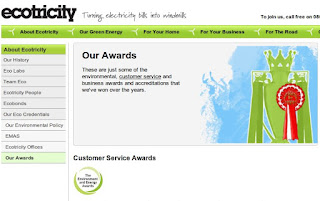< No earlier items | Index | A step forward >
Here are the first few paragraphs of 'The Grace Outpouring', an amazing book from south-west Wales. Roy explains how he was misled by his view of Father's purpose for his life.
 I first read 'The Grace Outpouring' and wrote a short review more than a year ago. Since that time I have given away many copies to friends and have found over and over again that it has found a special place in their hearts, challenged them, encouraged them, and sometimes deeply affected them.
I first read 'The Grace Outpouring' and wrote a short review more than a year ago. Since that time I have given away many copies to friends and have found over and over again that it has found a special place in their hearts, challenged them, encouraged them, and sometimes deeply affected them.So now I want to present the first few paragraphs of Chapter 1, 'We Bless You in the Name of Jesus'.
I was desperate. Despite a series of miracles that had enabled my wife Daphne and me to become directors of a beautiful Welsh Christian retreat centre I was frightened that I had made a mistake. As I thought about it I realised that for the first time in maybe thirty-five years, several months had passed during which I hadn't clearly brought somebody to the knowledge of Jesus. I believed I had a calling on my life to bring people to Jesus, so what was happening?
I wasn't to know it but God was hours away from showing me some unexpected answers. In the meantime the frustration mounted. It had been partly provoked by my visit to a business conference in Pembroke in the west of Wales. I had spent the day with 200 businessmen and women. I was at home among them. This was the type of pool I had fished in for most of my life.
As I reflected on my suit-clad outing to the hotel on the estuary the agitation grew. Instead of being with the Christians who came to the centre to recharge and reflect I needed to be with those who had no clear Christian understanding and commitment. I decided the only thing I could do was leave the centre.
The next morning I sat in our farmhouse-style kitchen and poured out, with some passion, the details of my agitated day with the businessmen to my ever-patient wife: 'It's just no good. I cannot stay here any longer. I need to immerse myself in the everyday lives of people without a Christian faith so I can just be me and share my faith with them.'*
How many of us have repeatedly come to places like this in our lives? How many times have I thought I knew his plan for me only to discover that he had moved on but I had not? (The answer to that question is, 'more times than I care to mention'!) Perseverance is a good thing, deafness and stubbornness are not. Sticking to my view of Papa's purpose can be misleading.
And having got into this place, like Roy we tend to dump our frustration and anxiety onto those around us.
But Father didn't leave Roy in this place of confusion, nor will he leave you or me in a place like that. If you read the book you will quickly see that things were resolved quite soon afterwards and in a really extraordinary way.
As you can see, the book is very readable. The story it tells is touching hearts and changing lives all over the world. My advice? Get hold of a copy and read it.
Read a brief review (includes several ways to buy a copy of the book).
*Copyright 2008 Roy Godwin, Dave Roberts. The Grace Outpouring published by David C Cook. Publisher permission required to reproduce. All rights reserved.
< No earlier items | Index | A step forward >













